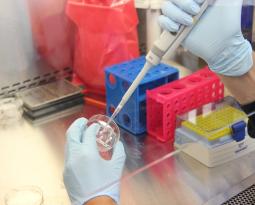Mississippi Patent of the Month – June 2022
Kitchens are filled with appliances to meet the numerous tasks for cooking. A microwave, a toaster, a mixer, and more start to fill up counters and detract from the look of a clean, minimalistic space. If used frequently, putting an appliance away after each use quickly becomes a nuisance.
Viking Range, LLC have been involved in the innovation of kitchen appliances for nearly 40 years. They’ve seen it all. Appliances are integral to the smooth flow of a kitchen, but they can also be detrimental. An appliance that is always plugged in is always drawing power. If always plugged in, it can also be easy to forget to shut it off. If left unattended, this appliance can overheat or burnout or cause a fire. And covering up an appliance without turning it off first will only exacerbate this issue.
It’s these experiences that inspired Viking Range to design an appliance cover that ensures it will not overheat or catch fire. The devices can be covered or stored in a cupboard, with each device having their own space. This creates a nice and orderly kitchen. The door of the enclosure is equipped with a device which detects if the door is fully open or closed. If open, the device sets the appliance in an “operational” mode so that it can be turned on and used as intended. If the door is detected to be closed, the device renders the appliance into a “limited mode”, preventing the device from being turned on or used.
The doors are further equipped with a second device to ensure the door does not accidentally open and turn on the device. This device has a backup sensor which detects if the appliance is in a working mode or a limited mode. If the appliance is operational, the locking device engages, preventing the door from closing even slightly. By maintaining a fully open position, the chance of overheating the appliance is reduced. When the appliance is turned off or not in use, the lock device disengages and the door can be closed at will.
Viking Range is focused on developing state of the art solutions to improve the functionality of a kitchen while keeping safety at its forefront.
Are you developing new technology for an existing application? Did you know your development work could be eligible for the R&D Tax Credit and you can receive up to 14% back on your expenses? Even if your development isn’t successful your work may still qualify for R&D credits (i.e. you don’t need to have a patent to qualify). To find out more, please contact a Swanson Reed R&D Specialist today or check out our free online eligibility test.
Who We Are:
Swanson Reed is one of the U.S.’ largest Specialist R&D tax advisory firms. We manage all facets of the R&D tax credit program, from claim preparation and audit compliance to claim disputes.
Swanson Reed regularly hosts free webinars and provides free IRS CE and CPE credits for CPAs. For more information please visit us at www.swansonreed.com/webinars or contact your usual Swanson Reed representative.

















